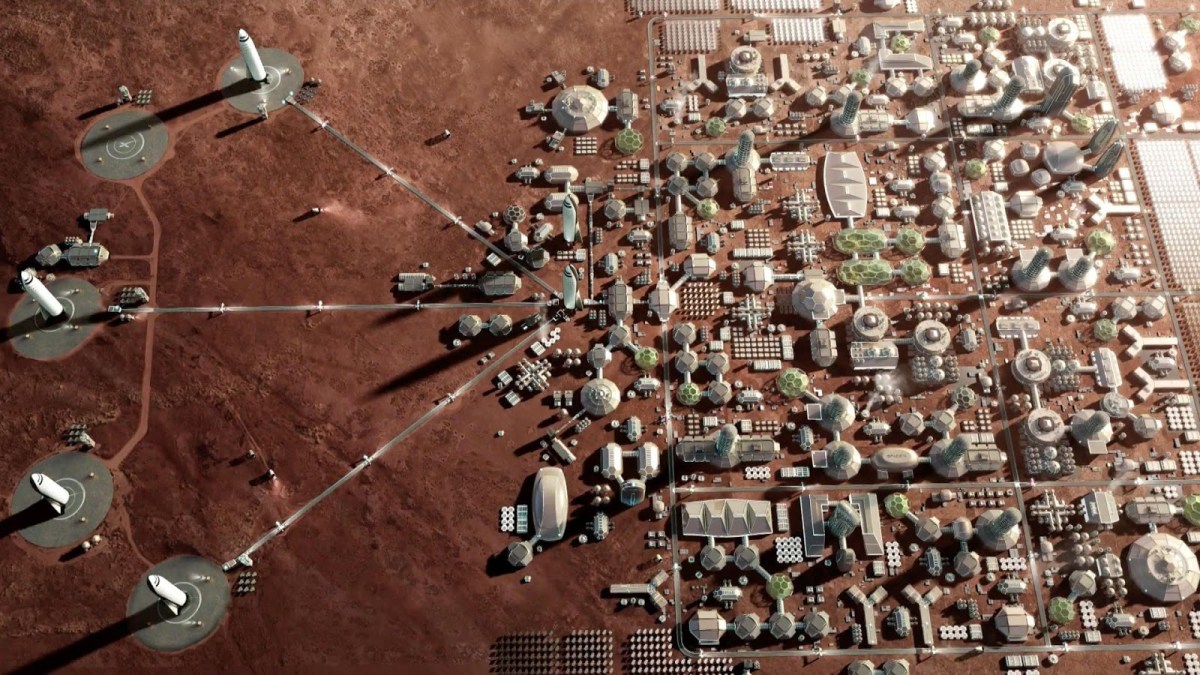On the occasion of SpaceX’s Texas facility launch in 2019, CEO Elon Musk described how life on Mars would be and spoke of Mars’ city sustenance and the idea of democracy in International space —-all of which was seen as a precursor to Musk’s plan for Martian residence. While Elon Musk at the time described SpaceX’s Mars plan as part of a mission to democratise Mars, create self-sustaining cities on the planet and carry “maybe around 100k people per Earth-Mars orbital sync,” which he mentioned in his tweet. Following these claims Musk also spoke about governance on Mars and the way social structures would function on the red planet. Claiming to land humans on Mars by 2024-26, Elon Musk’s proposed Martian idea stands in conflict with the United Nations’ Outer Space Treaty signed in 1967. While the signatories of the Treaty include the Russian Federation, the United Kingdom and the United States, a closer look at the clauses makes one question whether Musk’s dream could actually turn into reality. A look at the treaty makes one question, whether a private company and its employees along with billionaires seeking to pay for Martian travel and accommodation, actually set up and sustain a city with its own government on the planet, as Musk claimed on Twitter and his speech. The Treaty states that “ the exploration and use of outer space shall be carried out for the benefit and in the interests of all countries and shall be the province of all mankind”, and Musk’s proposed idea for the planet does not yet describe how potential Martians will be selected. Will these be billionaires paying their way to the “fixer-upper of a planet” as Musk calls it, or will they people randomly selected on a lottery?
Further, how the society and governance have to be structured on Mars seems to be out of the hand of the technocrat billionaire, despite his plans and claims for the planet. One of the clauses of the Treaty states that “outer space is not subject to national appropriation by claim of sovereignty, by means of use or occupation, or by any other means”, which stands in contradiction to Musk’s plans wherein he claims sovereignty over the red planet and its resources. Another idea that seems to be a conundrum with regards to space travel, SpaceX’s plans as well as Musk’s aspirations is the Treaty’s explicit mention of state entities, state laws and international laws holding true even in outer space.
An analysis of Musk’s space plans and the UN’s Space Treaty makes one question the future of Martian colonisation, the government therein and the role of private companies like SpaceX in the process. The analysis seeks to question if Musk will rule over Mars by virtue of his expedition, if the Treaty, signed in 1967 will be altered for future space travel and residence, and if governments will have to bow in front of technocrats for the future of mankind. Musk’s plans also make one question how the Earth’s future would be as a planet, who will reside on it and whether Earth would become a waste-dump for Martians if that is to be ‘fixer-upper of a planet’.
Another significant space travel and residence news was released soon after Musk’s tweets and interviews went viral, this was the announcement of the first space hotel, expected to open in 2027. Orbital Assembly Corporation (OAC) recently revealed their detailed plan for Voyager Station, a luxury space station cum hotel that is expected to accommodate over 400 guests. This plan too is one that will determine the future of space travel and inter-governmental as well as private company relations. With a room for the Voyager Station costing approximately $25 million, unlike SpaceX, the OAC makes clear who will have access to space travel and how it will affect the world.
While both of these projects are still in the making, with predictive claims for the future, the presence of these ideas makes one question how society would be structured in the future. These projects also leave room to think about climate change, the future of the earth and who will be offered an alternative planet if this one fails. Furthermore, who will have control over space and will limited laws, signed in 1967 sustain the future of space travel?
Saman Fatima is a third-year History Major at Ashoka University, who is often found sketching or reading for leisure when not immersing herself in mandatory class assignments.
Picture Credits: NASA SpaceFlight.com
We publish all articles under a Creative Commons Attribution-Noderivatives license. This means any news organisation, blog, website, newspaper or newsletter can republish our pieces for free, provided they attribute the original source (OpenAxis).

